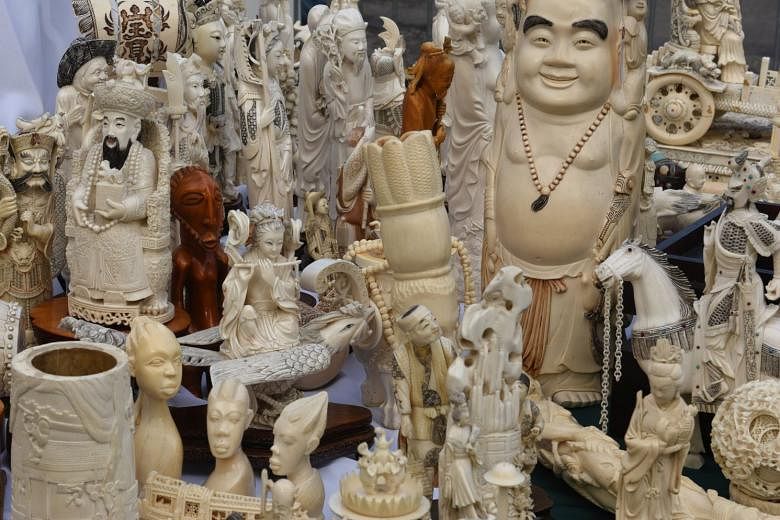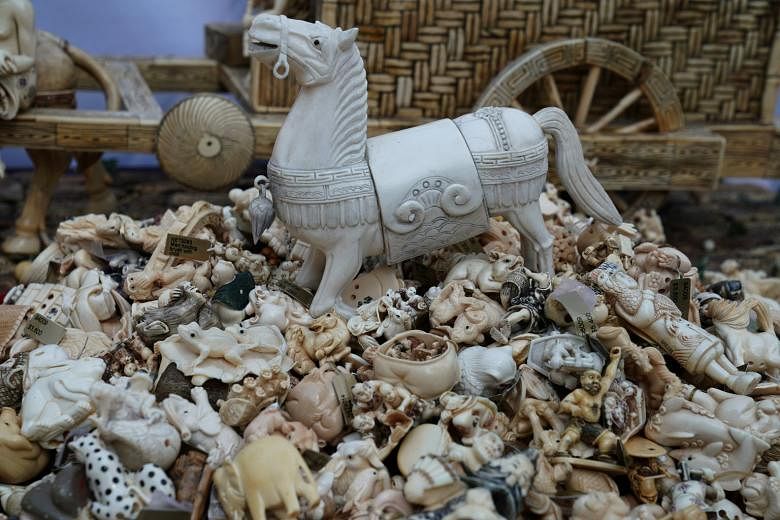NEW YORK (AFP) - US officials destroyed nearly two tonnes of carved illegal ivory worth US$8-10 million (S$10-13 million) in New York's Central Park on Thursday (Aug 3) to denounce poaching that kills nearly 100 elephants a day in Africa.
On a brilliant summer's day with Manhattan's skyscrapers visible above the trees, decorative objects were placed on a conveyor belt and sent into a crusher, sending plumes of dust into the air to cheers.
The haul, which was the result of three years of hard investigative work in New York state, represents ivory from around 100 elephants.
John Calvelli, a senior official from the Wildlife Conservation Society, which helped organize the event, said 96 elephants are killed in Africa on average each day or around 35,000 a year.
The event was the third time authorities have staged a public ivory crushing in the United States since 2013.
"We're sending a message to the rest of the world. Stop buying ivory and lets save these elephants," Calvelli told AFP.
US federal officials, Manhattan District Attorney Cyrus Vance and New York Republican Congressman Dan Donovan were among the hundreds of supporters who attended the event.
"It's not ok to be selling these goods anymore and perpetuating and prolonging the agony of the situation," said British rocker Mick Fleetwood of Fleetwood Mac fame, who turned out to lend his support.
Speaking to AFP, he denounced the rate of elephant killing as "beyond imagination."
"If you're dealing in the proceeds of wildlife crime, if you are trading ivory, you're going to get prosecuted and it's not going to be pretty," Vance told supporters at the event.
The New York State Department of Environmental Conservation carried out the crushing of tusks, trinkets, statues and jewellery.
The international trade in ivory was outlawed in 1989. China remains the largest market, with the United States in second place.
Beijing has said it will ban all ivory trade and processing by the end of 2017, a move that conservationists have hailed a "game changer."
Calvelli said the three largest markets in the United States - California, Hawaii and New York - have fundamentally closed in recent years.
Elephant tusks are highly prized, particularly in Asia, where they are carved into ivory statuettes and jewellery.
The WWF estimates that in the early 20th century, there may have been as many as three to five million African elephants, but says there are now around 415,000.



